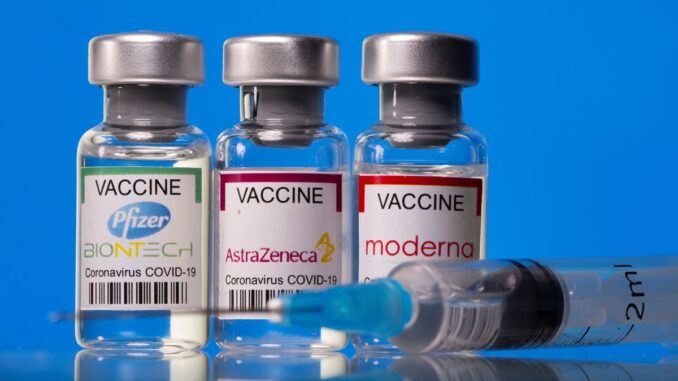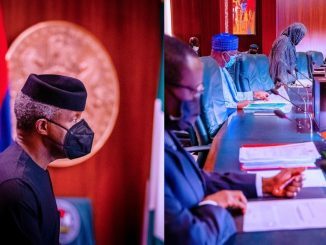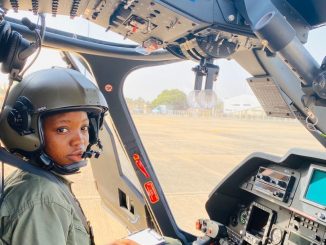
The National Primary Health Care Development Agency (NPHCDA) has integrated childhood vaccination at COVID-19 vaccination sites for children from 0-23 months.
This is to ensure that preventable childhood diseases are not neglected in the face of the response against the COVID-19 pandemic.
The Executive Director, NPHCDA, Dr Faisal Shuaib, disclosed this at the National COVID-19 vaccines weekly briefing on Tuesday, in Abuja.
The News Agency of Nigeria (NAN) reports that this formed part of the first meeting for the 2022 to give an update on the progress made in the country’s COVID-19 vaccination process by the agency.
According to him, the integration of childhood immunisation is part of the Federal Government plan to involve childhood immunisation in its ongoing COVID-19 campaign train.
“In this phase of COVID-19 mass vaccination, the campaign would be integrated with childhood immunisation and other primary health care services.
“What this simply means is that alongside the COVID-19 vaccines, childhood vaccines will also be available at COVID-19 vaccination centres.
“Consequently, parents or guardians with children aged zero to 23 months are urged to take them along to the vaccination sites,” he said.
While calling on Nigerians to utilise the ongoing COVID-19 vaccination campaign across the country, Shuaib said the holiday season came with a spike in the number of COVID-19 cases.
ALSO READ: Mixing Pfizer, AstraZ COVID-19 shots with Moderna gives better immune response — UK study
The NPHCDA boss said that several unvaccinated individuals were migrating from the cities to the rural areas and back to the cities.
“Globally, we saw the emergence of new variants such as IHU variant in France which is said to have 46 mutations, Deltacron in Cyprus and the Omicron variant still being highly infectious with a BA.2 subvariant rapidly spreading.
“More of our citizens were coming down with the infection. Luckily for our vaccinated population, those who came down with the COVID-19 infection had mild symptoms which they managed at home due to the immunity the vaccination provided them.
“If they were not vaccinated, we cannot predict how these cases would have turned out. Vaccination prevents you from severe disease, hospitalisation and death,” he said.
He added that the reason for the emergence of these variants was because there was still a large proportion of the eligible population were yet to be vaccinated.
According to him, this gives the virus time to mutate and fight back.
“It is important that we protect ourselves and our loved ones by getting the jab. Our vaccination exercise was expanded to enable all eligible persons to have easier access.
“All vaccination sites are open to eligible persons, 18 years and above for first, second and booster doses. We call on Nigerians to avail themselves of this opportunity in the ongoing mass vaccination exercise to get vaccinated against COVID-19,” he said.
Meanwhile, the UNICEF Nigeria Representative, Dr Peter Hawkins disclosed that 298 million dollars had been used by the Nigerian government for the procurement of the Johnson and Johnson COVID-19 vaccine in total at about 30 million doses.
Hawkins noted that this was a commitment and the drawdown comes as it becomes available and as it was required.
“Nigeria so far, but the actual figure as received was 51,014,140 doses. There’s 10 million that is being stored ready to come into Nigeria,” he said.




